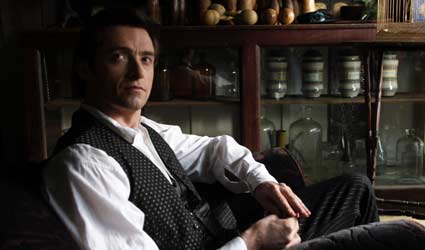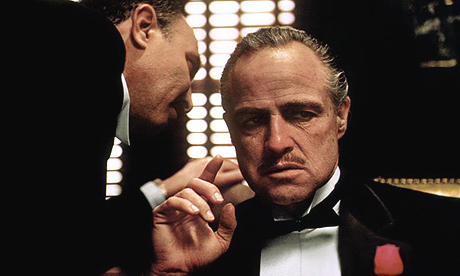
C
Directed by Cristi Puiu
Critical acclaim is an odd thing. Indeed, critics seldom completely miss the boat on fantastic films and therefore films that often rightfully deserve to be "critically acclaimed" often are. On the other hand, once in awhile critics will convince themselves, each other, and finally the public that films of suspect worth are covered with accolades. If anyone actually thinks this doesn't happen, I give you Paul Haggis's "Crash" and Rob Marshall's "Chicago," both critically acclaimed at the time of their release, both Oscar winners, both horrible films that many of the same critics who once praised them no doubt now wish to distance themselves from as much as possible. So it is, I'd argue, with "The Death of Mr. Lazarescu," directed by Christine Puiu, a sloppily made and clunky critique of Romania's healthcare system that nevertheless succesfully garnered considerable critical acclaim upon its release, even winning "A Certain Regard" at Cannes in 2005.
Mr. Lazarescu, a geriatric widower living in public housing in Bucharest, calls the ambulance one night complaining of head and abdomen pains. While waiting for the ambulance, he shuffles over to his neighbors flat where he is given some encouragement and a measure of medical advice while he waits for the ambulance to arrive which, of course, takes forever. When Mr. Lazarescu is finally whisked away by ambulance, it is only the beginning of a long, painful journey that will take him from one Bucharest hospital to another, passing through the hands of countless medical practicioners on the way, some of whom are concerned for Mr. Lazarescu but most of whom could care less about the old man's quickly deteriorating health.
Cristi Puiu's indictment of Romania's healthcare system, although meant to shock, was far from revelatory in my case for two reasons. Indeed, I was once friends with Romanian professor in university who often regaled me with tales of Romania's broken healthcare system, how women giving birth had to pay for the medical equipment, down to the sponges and towels, needed for delivery or how ambulances could take hours to pick up a patient or sometimes not arrive at all. Puiu indictment of the healthcare system, although not shocking, is therefore far from false or sensationalized and Mr. Lazarescu's ordeal seems to be par for the course in Romania and, from what I've gathered, much of the rest of Eastern Europe. Nevertheless, simply making a film that criticizes a system that everyone already agrees is broken does not, in itself, warrant any praise. It almost seems that Puiu thought that a simple skewering of the medical system without any attention to editing, narrative structure or plot would be good enough to get her film into myriad film festivals which, unsurprisingly, it did. Despite this, the quality of Mr. Lazarescu as a film is horribly low and I can't at all understand how so many critics were ready to simply give its glaring shortfalls a pass since the subject matter being roasted seemed socially appropriate.
"Mr. Lazarescu's" biggest fault is its almost criminal lack of editing. I'm sure some will immediately scoff at that criticism by stating that the length of the movie is a device used by the director to highlight Mr. Lazarescu's long, drawn out ordeal. Fine. If that's the case, make the two and a half hours you're asking audiences to invest in your movie worthwhile. The scenes in "Mr. Lazarescu" carry on ad nauseum and, worst of all, long after their point has been made. Mr. Lazarescu's medical issues are being subordinated to power plays between the medical staff? I got it after the first few scenes yet Puiu felt it was important to keep reminding me that Mr. Lazarescu's health was being given second billing to petty fights by making sure that another one erupted every five minutes. The complete disregard for editing in "Mr. Lazarescu" reminded me of "Crimson Gold," a Jafer Panahi film that was equally unswerving in its belief that the audience would only latch on the its social critique if they were given several hours of tedium to reflect on it.
I really don't think I can chalk up my dislike of "Mr. Lazarescu" to simply "not getting it" either. Indeed, the skewering of the slowness of the health care system as well as the subtle jabs at the carelessness and egocentric nature of those around Mr. Lazarescu in particular and human beings in general was pretty much crystal clear. Puiu's observations are sometimes funny and somewhat perceptive but are never what I'd qualify as groundbreaking stuff. I found it hardly a revelation to learn that the health care system of a notoriously corrupt ex-communist state still in the midst of a painful socio-economic development is slow, innefficient, and buckling under the weight of bureaucry. As a Canadian, my own healthcare system is crippled by innefficiency, long wait times, and underfunding, yet it's still lightyears ahead of most systems found in Eastern Europe so "Mr. Lazarescu" wasn't exactly an eye opening experience. Furthermore, some of the symbolism Puiu uses seemed amateurish at best such as Mr. Lazarescu's rather loaded name which I'm guessing is a nod to the ressurection of Lazarus (Life), Dante descent through the rings of Hell (Mr. Lazarescu's descent through the Hellish Romanian bureaucracy) and finally Remus' death at the hands of Romulus, his brother (Mr. Lzarescu's death at the hands of his countrymen) Uhh...call me a snob but I'm unimpressed.







